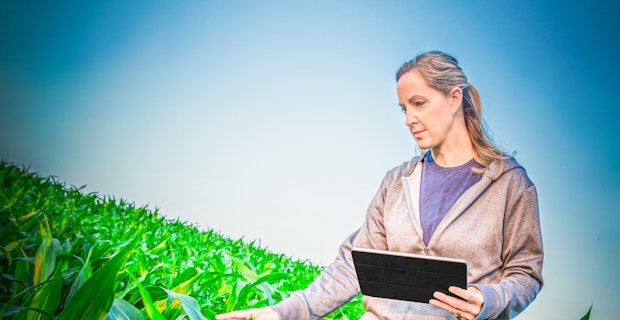This International Women’s Day, the theme is ‘Choose to Challenge’, a theme that encourages us to challenge the status quo and seeks to advance female participation at all levels of the workplace in 2021 and beyond. Agriculture has historically been a male-dominated industry, but change is happening with increasingly more women taking up education in agriculture and related fields, and making up a larger portion of the workforce. ‘Women make up 41% of the agricultural workforce but only 18% of management roles and 2.3% of CEO positions’ according to the Australian National Farmers’ Federation (NFF) in 2019, with female leaders such as NFF President Fiona Simson and Victorian Farmers Federation President Emma Germano forming an exception in a largely male-dominated field.
It’s important to note however that these statistics only take the ‘official participation’ into account, and we all know about the critical role that women play on farms without filling an official role or getting official recognition. Whether it’s shifting an auger, driving a tractor or ‘doing the books’, women have always played a very important role in agriculture. What is changing now though, as society modernises, is that women are increasingly working in a greater number of roles throughout the ag vertical and are taking lead in more management and leadership roles.
A STEM-trained talent pool
I didn’t grow up in a ‘rural’ environment myself, but I’ve always had a keen interest in agriculture. My father worked in crop science all his life and, through his career, fostered my passion for food and science. During my agricultural science studies in Melbourne in 2016, there were actually more women studying ‘Agriculture, Environmental and Related Studies’ than men, making up 52% of the students. Other STEM degrees such as engineering and information technology still have a very low proportion of female students, but the more equal female-to-male ratio in agricultural education in the last decade shows that there is no shortage of female graduates ready to take on a career in agriculture and become leaders in the industry.

The Agtech boom
The digital transformation of agriculture empowers farmers and ag-professionals across the world to leverage innovative agricultural technology and improve productivity and profitability in farming systems. This transformation has been occurring for over 10 years already, but we’ve seen a rapid acceleration recently due to the availability of new and novel technologies, and events such as the COVID-19 pandemic that have created a stronger demand for digital solutions.
The agtech industry requires a wide range of skill sets from its workforce in order to succeed, from software developers to robotic engineers, ag scientists, mechanical engineers, agronomists and many others. This wide range of skills required, in combination with more highly-skilled females available in the talent pool, makes agtech a perfect setting to create a more diverse workforce and inclusive agricultural industry.
Female leadership
The fact that only 18% of agricultural management roles in Australia are held by females, clearly shows that we still have a lot of hard work to do to achieve a better balance in agriculture. I’d love to see more females joining me in this exciting and innovative industry, and build careers for themselves in agriculture. As the percentage of females working in agriculture increases, so will the number of females in leadership positions, and I personally look forward to seeing many more female leaders emerge to challenge traditional management patterns and represent our industry on a national and international level.
I do feel that there is a genuine desire and drive by everyone in the agricultural industry to offer good development opportunities to females at all different stages of their career and I already see this happen at my own workplace at Agworld and many other businesses. In the end, no industry can afford to only focus on 50% of the talent pool available, especially in such a multi-faceted industry like agriculture!
If you’re reading this and you’re wondering how you can get involved in agriculture, please feel free to reach out to me, I’d love to have a chat! Or, better yet, you might be able to join me at Agworld! See agworld/careers for the career opportunities currently available.





